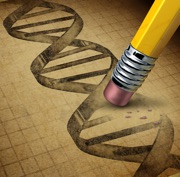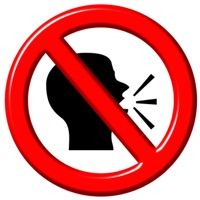 Undergraduate labs are notoriously dismal, certainly from the student point of view and often from faculty’s as well. One obvious reason is that the design and delivery must to some extent be cookie-cutter because materials and set-up must be planned for what may be dozens of sections, delivered to hundreds of students, and most often constrained to once-a-week, two- or three-hour meetings. The Howard Hughes Medical institute (HHMI) has sponsored the HHMI Phage Hunters (SEA-phage) project (and related UT Austin Freshman Research Initiative) with the goal of addressing several shortcomings of classical Intro Bio labs. I believe that it’s on the verge of being something truly awesome (at least from the point of view of a structure/function discovery-driven instructor) and greatness for ‘my’ target group could be by following the core thinking to different ends.
Undergraduate labs are notoriously dismal, certainly from the student point of view and often from faculty’s as well. One obvious reason is that the design and delivery must to some extent be cookie-cutter because materials and set-up must be planned for what may be dozens of sections, delivered to hundreds of students, and most often constrained to once-a-week, two- or three-hour meetings. The Howard Hughes Medical institute (HHMI) has sponsored the HHMI Phage Hunters (SEA-phage) project (and related UT Austin Freshman Research Initiative) with the goal of addressing several shortcomings of classical Intro Bio labs. I believe that it’s on the verge of being something truly awesome (at least from the point of view of a structure/function discovery-driven instructor) and greatness for ‘my’ target group could be by following the core thinking to different ends.
What’s important about… - 2. page
Hard choices: what NOT to teach in Introductory Biology
 Several years ago, I had the opportunity to shop a concept for an interactive eBook around. While the project failed to overwhelm the reviewers, I learned something very interesting about why textbooks are so huge. There was essentially universal agreement among instructors that we’re killing ourselves and our students by trying to ‘cover’ a field that has become so vast and simultaneously so deep. So why don’t authors just roll up sleeves and set to work slimming content down? Because textbook sellers must… sell textbooks. If a given text doesn’t offer your favorite experiment, or the thing I love most about plants, or the detail that she thinks is the essence of electron transport then our business goes elsewhere. To be profitable, then, a textbook must be all things to all people–the union of all relevant teaching sets. So we’re all doomed :-). Since I’m currently not successfully selling anything to anybody, I’m free to share my thoughts…
Several years ago, I had the opportunity to shop a concept for an interactive eBook around. While the project failed to overwhelm the reviewers, I learned something very interesting about why textbooks are so huge. There was essentially universal agreement among instructors that we’re killing ourselves and our students by trying to ‘cover’ a field that has become so vast and simultaneously so deep. So why don’t authors just roll up sleeves and set to work slimming content down? Because textbook sellers must… sell textbooks. If a given text doesn’t offer your favorite experiment, or the thing I love most about plants, or the detail that she thinks is the essence of electron transport then our business goes elsewhere. To be profitable, then, a textbook must be all things to all people–the union of all relevant teaching sets. So we’re all doomed :-). Since I’m currently not successfully selling anything to anybody, I’m free to share my thoughts…
Protein trafficking: How did this get here?
 Cell biology can be a challenging aspect of Introductory Biology. It’s visually fascinating, the techniques are now incredibly diverse and powerful… but the usual issue arises: what are the concepts that we ought to be teaching? The topics include organelles, transport, membranes, compartmentalization… but why? I think that protein trafficking draws together many of these fundamental facts in the context of engaging students in questions and wonder. I also propose a framework for turning a potentially dry listing of facts and names-of-parts into a journey of exploration where students ‘accidentally’ learn techniques, organelle roles, and scientific community.
Cell biology can be a challenging aspect of Introductory Biology. It’s visually fascinating, the techniques are now incredibly diverse and powerful… but the usual issue arises: what are the concepts that we ought to be teaching? The topics include organelles, transport, membranes, compartmentalization… but why? I think that protein trafficking draws together many of these fundamental facts in the context of engaging students in questions and wonder. I also propose a framework for turning a potentially dry listing of facts and names-of-parts into a journey of exploration where students ‘accidentally’ learn techniques, organelle roles, and scientific community.
What’s important about… Concepts in Translation
Teaching biology at the cell/molecular level is challenging; as the Bob Seger song puts it ‘Deadlines and commitments/what to leave in… what to leave out.” How to decide? The glib answer is “identify the key concepts.” A definition of these might be “what are the aspects and ideas without which the process would not make sense, and which, if changed, would rock the cell’s world.” So… what are the Big Concepts of translation? Starting with negation, these cannot be the names or even the structures of the twenty amino acids (believed to be a combination of what was on hand in abundance ‘in the beginning’ and ‘discoveries’ that were biochemically accessible) nor their codon assignments, which, may reflect some physical correspondences, but seem to largely be a ‘frozen accident’ that we should not expect to find elsewhere. Rant: it cannot be the ability to ‘translate’ a message in a codons-to-amino-acids look-up table, as this has nothing whatever to do with the biological process! And the core cannot be a laundry list of actors and factors.
The big concepts in translation…
Patterns in scientific discovery: the Periodic Table
While primarily claimed by chemistry (and rightly so, I grudgingly admit), the periodic table is a delightfully clear example of DISCOVERY science and of fundamental importance to an understanding of Biology. I’m creating a distinction here between what I might call ‘fill in the gaps’ science or ‘next steps at the endpoints’ science because I think students are exposed almost exclusively to the latter two. In this usage, discovery science would be discerning a new law or pattern in nature, establishing an ordering principle, or revealing something transcendent. Many of these situations arise because of recognition of ordering patterns; the periodic table is perhaps one of the most clear and readily understood.
Death by 1000 cuts: Vocabulary in Introductory Biology
I have read that the average number of new words of vocabulary in introductory biology textbooks exceeds that found in… a foreign language learning text. This can’t be well-considered; new words are the primary purpose of a foreign language course; they are a barrier to understanding in a Biology course
Some thoughts on how vocabulary in introductory biology is a horrific educational crime, and concrete proposals about what can be done, as well as available tools, follow
- « Previous
- 1
- 2
- 3
- Next »

